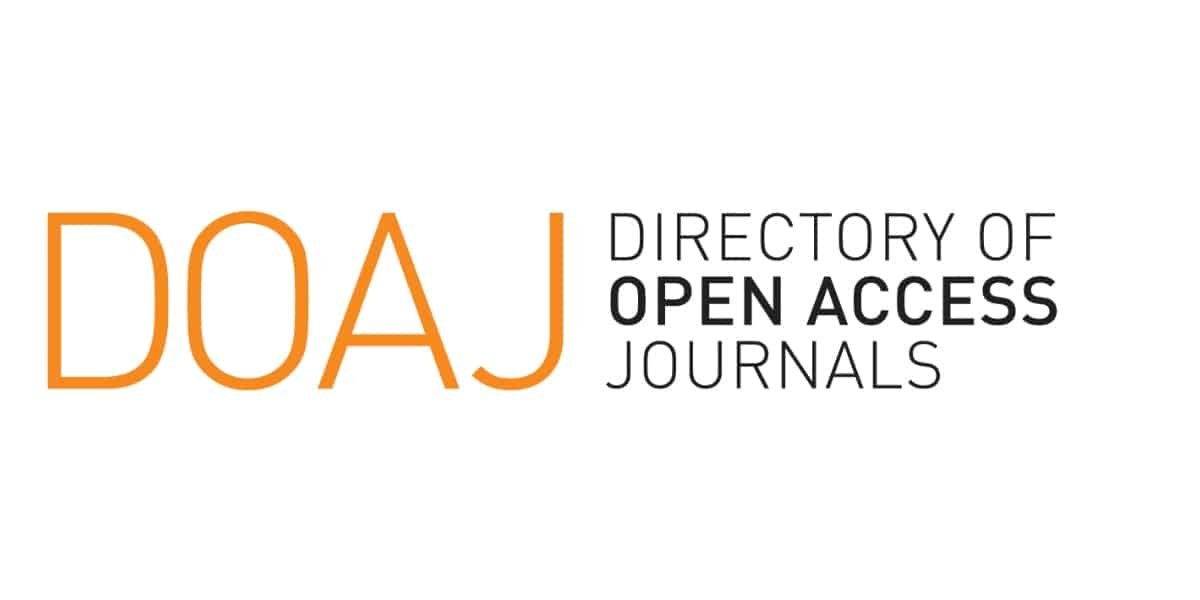The Principle of Honesty in Buying and Selling Transactions from the Perspective of the Quran and Hadith
DOI:
https://doi.org/10.65049/ttn4v202Keywords:
Al-Qur’an, Hadith, Honesty, Islamic Economics, Trade TransactionsAbstract
Honesty is a fundamental moral principle in the Islamic economic system that serves as the foundation of trust among business actors, consumers, and society. In the context of buying and selling transactions, honesty functions not only as an ethical value but also as a legal and spiritual basis that ensures justice and blessings in economic dealings (muamalah). This study aims to analyze the principle of honesty in trade transactions based on the perspectives of the Qur’an and Hadith. The research employs a normative legal method with a qualitative approach through a literature review of primary and secondary sources, such as Qur’anic exegesis (tafsir), Hadith collections, and scholarly works on Islamic economics. The findings indicate that the Qur’an and Hadith provide explicit guidance on the necessity of being honest in trade and prohibit deceit, usury (riba), and uncertainty (gharar). Honesty is considered the key condition for establishing legitimate and blessed transactions. Verses such as Surah Al-Mutaffifin (83): 1–3 and Surah An-Nisa (4): 29 emphasize the importance of integrity in business dealings, while the Prophet Muhammad’s (peace be upon him) hadith underscores that an honest trader will be among the prophets and the righteous in the Hereafter. Therefore, applying the principle of honesty in trade not only fosters trust and economic justice but also reflects the embodiment of Islamic values in sustainable business practices.
Downloads
References
Alberto, M. V. J., & Purnomo, H. (2022). Worship as a Human Motivation in Islamic Behaving: Human Motivation in Behaving. Psikis: Jurnal Psikologi Islami, 8(1), 54–62. https://doi.org/10.19109/psikis.v8i1.11648
Ali, A. H. (2024). Community-based Economic Development and Partnership Cooperation: The Economics Strategy for Prosperity of the Ummah. Samarah: Jurnal Hukum Keluarga Dan Hukum Islam, 8(2), 1280–1300. https://doi.org/10.22373/sjhk.v8i2.22925
Alsayed, N., & Kayadibi, S. (2025). Ensuring Fairness and Transparency in Transactions: Islamic Property Law and Contracts. Journal of the Contemporary Study of Islam, 5(1), 33–86. https://doi.org/10.37264/jcsi.v5i1.02
Badruzaman, D., Hermansyah, Y., Suhara, D., Hasanudin, & Rudiansyah, A. (2023). Legal Review of Business Dispute Resolution in the Sharia Capital Market. Jurnal Ekonomi Syariah Pelita Bangsa, 8(1), 121–126. https://doi.org/10.37366/jespb.v8i01.1687
Bsoul, L., Omer, A., Kucukalic, L., & Archbold, R. H. (2022). Islam’s Perspective on Environmental Sustainability: A Conceptual Analysis. Social Sciences, 11(6), 1–11. https://doi.org/10.3390/socsci11060228
Burhanuddin, C. I., Kara, M. H., Lutfi, M., & Syaharuddin. (2022). Muamalah Market Disruption in The Middle of Modern Markets in Islamic Economic Perspective. Sports Analytics within Sports Economics and Management, 40(1), 1–11. https://doi.org/10.25115/eea.v40i1.6344
Duong, N. T., Lin, H.-H., Wu, T.-L., & Wang, Y.-S. (2024). Understanding Consumer Trust Dynamics and Purchase Intentions in a Multichannel Live Streaming E-Commerce Context: A Trust Transfer Perspective. International Journal of Human–Computer Interaction, 41(4), 9123–9136. https://doi.org/10.1080/10447318.2024.2423332
Efendi, F., Candra, A., Mardianton, Fauzi, M., Elgi, Ilham, M., & Sumarni, I. (2023). The Concept of Islamic Economic Fiqh in Mu’amalah Perspective. Samara: Journal of Islamic Law and Family Studies, 1(1), 10–18.
Fachrezzi, B. R., Sulistiyanto, D. R., Jabbi, M. L., & Adamu, I. (2023). Reflection of Al-Ghazali’s Business Ethics for Tax Consultants. Journal of Islamic Accounting and Finance Research, 5(2), 149–176. https://doi.org/10.21580/jiafr.2023.5.2.16068
Fadila, N. (2022). Imam Al Ghazali’s Perspective on Islamic Business Ethics Concept. Langgar: Journal of Social, Humanities, and Islamic Study, 1(2), 143–154.
Farikhin, A., & Mulyasari, H. (2022). Gharar, Fraud and Dispute in Islamic Business Transaction an Islamic Law Perspectives. International Economic and Finance Review, 1(2), 40–53. https://doi.org/10.56897/iefr.v1i2.18
Fidiana, Handayani, N., & Retnani, E. D. (2022). Creating Spiritual Value: The Islamic Way to Integrate Environmental and Social Responsibilities. The International Journal of Accounting and Business Society, 3(3), 380–399. https://doi.org/10.21776/ijabs.2022.30.3.679
Fikra, A. (2024). An Islamic Law Perspective on Online Buying and Selling Without Direct Inspection of Goods (Bay’ al-Ghaib) in ECommerce Practices. SYARIAT: Akhwal Syaksiyah, Jinayah, Siyasah and Muamalah, 1(4), 206–214.
Fitrayani. (2025). Integrasi Nilai-Nilai Islam dalam Praktik Manajemen Bisnis Modern. Jurnal Pilar: Perspektif Ilmu-Ilmu Agama Islam Kontemporer, 16(1), 1–13. https://doi.org/10.26618/5jrnae91
Haniffah, N. L., Shaiban, M. S., & Ahmed, P. (2023). Development and Validation of a Performance Measurement System Based on Islamic Principles. Heliyon, 9(5), 1–17. https://doi.org/10.1016/j.heliyon.2023.e16095
Jawad, A. (2024). Bridging Faith and Science: Quranic Principles for Sustainable Water Energy Management. Al-Quran and Water Science, 1(1), 11–19.
Khoirudin, & Azzaki, A. (2024). Perspective of Quranic Verses of Business Ethics on Justice and Honesty in Trade. Journal of Halal Industry Studies, 3(2), 73–87. https://doi.org/10.53088/jhis.v3i2.1396
Khotimah, U. K. (2023). Online Buying and Selling From the Perspective of Maqasid Shariah. Journal of Sharia Economics, 5(2), 218–236. https://doi.org/10.35896/jse.v5i2.595
Maulida, R., & Gafur, A. (2023). Halal Food Market Based on the Meaning of Alumni of Shariah Economic Major at University in Samarinda and Makassar. International Journal of Research and Innovation in Social Science (IJRISS), 7(01), 2043–2051. https://dx.doi.org/10.47772/IJRISS.2023.7012156
Mohidem, N. A., & Hashim, Z. (2023). Integrating Environment with Health: An Islamic Perspective. Social Sciences, 12(6), 1–26. https://doi.org/10.3390/socsci12060321
Muhammadiyah, R. (2020). Khiyar dalam Jual-Beli. Muhammadiyah.or.Id. https://muhammadiyah.or.id/2020/07/khiyar-dalam-jual-beli/
Newman, D. (2021). Honesty, transparency and data collection: Improving customer trust and loyalty. IQ: The RIMPA Quarterly Magazine, 37(2), 44–47.
Nst, A. A., & Imsar. (2025). Analisis Fiqih Muamalah dalam Transaksi Jual Beli Online Menurut Perspektif Hukum Islam dan Syariah. Jurnal Ilmiah Ekonomi, Akuntansi, Dan Pajak, 2(3), 191–201. https://doi.org/10.61132/jieap.v2i3.1543
Priyadi, I. H., & Anwar, M. M. (2024). A Culture of Honesty (Shiddiq) and Shame (Haya’) in Organisational Financial Management and Accounting Practices: An Empirical Qualitative Approach. Journal of Accounting and Business Education, 9(2), 31–42.
Rayyes, F. (2023). Reflecting the Nature of the Prophet Muhammad on the Ethics of Internal Auditors. Jurnal Samudra Ekonomi Dan Bisnis, 14(2), 290–303. https://doi.org/10.33059/jseb.v14i2.6239
Robbani, S., Yasid, A., & Sanuri. (2021). The revitalization of Maqasid al-Mu‘amalat according to Abdullah bin Bayyah and Its implications on Islamic law. Research, Society and Development, 10(14), 1–10. https://doi.org/10.33448/rsd-v10i14.21295
Rohman, M. M., Mu’minin, N., Masuwd, M., & Elihami. (2024). Methodological Reasoning Finds Law Using Normative Studies (Theory, Approach and Analysis of Legal Materials). Maqasidi: Jurnal Syariah Dan Hukum, 4(2), 204–221. https://doi.org/10.47498/maqasidi.v4i2.3379
S., U. C. (2021). Typology of Legal Research Methods in Normative and Sociological Thinking. Fox Justi: Jurnal Ilmu Hukum, 12(1), 113–120. https://doi.org/10.58471/justi.v12i1.769
Saputro, J. D., Jumino, & Hendrianto. (2024). Islamic Economic Law as Fiqh Muamalah Iqtishadiyyah, Not From Conventional Economic Science. Saqifah: Jurnal Hukum Ekonomi Dan Syariah, 9(1), 11–19.
Tampubolon, H. P. S., & Harahap, A. R. (2025). Concept of Profit Sharing for the Management of Village Fund Grants Perspective of Dsn Mui Fatwa No/114/Dsn-Mui/Ix/2017 (Case Study Of The Kartini Farmer Group, Hanna Plantation Village, Kualuh Hulu District, North Labuhanbatu Regency). Indonesian Interdisciplinary Journal of Sharia Economics (IIJSE), 8(1), 2258–2269.
Tziner, A., & Persoff, M. (2024). The Interplay Between Ethics, Justice, Corporate Social Responsibility, and Performance Management Sustainability. Frontiers in Psychology, 15, 1–13. https://doi.org/10.3389/fpsyg.2024.1323910
Utami, A. A., Setiawan, A. R., & Asy’ari, M. A. (2021). Nilai Amanah dan Kejujuran atas Praktik Bagi Hasil pada Pusat Perdagangan Syariah. Jurnal Riset Dan Aplikasi: Akuntansi Dan Manajemen, 5(1), 1–14. https://doi.org/10.33795/jraam.v5i1.001
Web, T. (2025a). Surat Al-Baqarah Ayat 275. Tafsirweb.Com. https://tafsirweb.com/1041-surat-al-baqarah-ayat-275.html
Web, T. (2025b). Surat At-Taubah Ayat 119. Tafsirweb.Com. https://tafsirweb.com/3135-surat-at-taubah-ayat-119.html
Web, T. (2025c). Surat Az-Zariyat Ayat 56. Tafsirweb.Com. https://tafsirweb.com/9952-surat-az-zariyat-ayat-56.html
Yan, X., Espinosa-Cristia, J. F., Kumari, K., & Cioca, L. I. (2022). Relationship between Corporate Social Responsibility, Organizational Trust, and Corporate Reputation for Sustainable Performance. Sustainability, 14(14), 1–15. https://doi.org/10.3390/su14148737
Yasin, N. A., Hidayati, A., & Nurlailin, W. (2024). Prophet Muhammad’s Prophetic Business Strategy: Comparison with Management Theory and its Implications for Character Education. UTSAHA: Journal of Entrepreneurship, 3(4), 13–29. https://doi.org/10.56943/joe.v3i4.769
Downloads
Published
Versions
- 2025-12-28 (5)
- 2026-01-03 (4)
- 2026-01-02 (3)
- 2026-01-02 (2)
- 2025-11-04 (1)
Issue
Section
License
Copyright (c) 2025 Neng Yani Nurhayani, Erika Rishan Adillah, Ahmad Pathonih, Asep Mustofa Kamal, Raden Rara Rita Erawati (Author)

This work is licensed under a Creative Commons Attribution-ShareAlike 4.0 International License.























